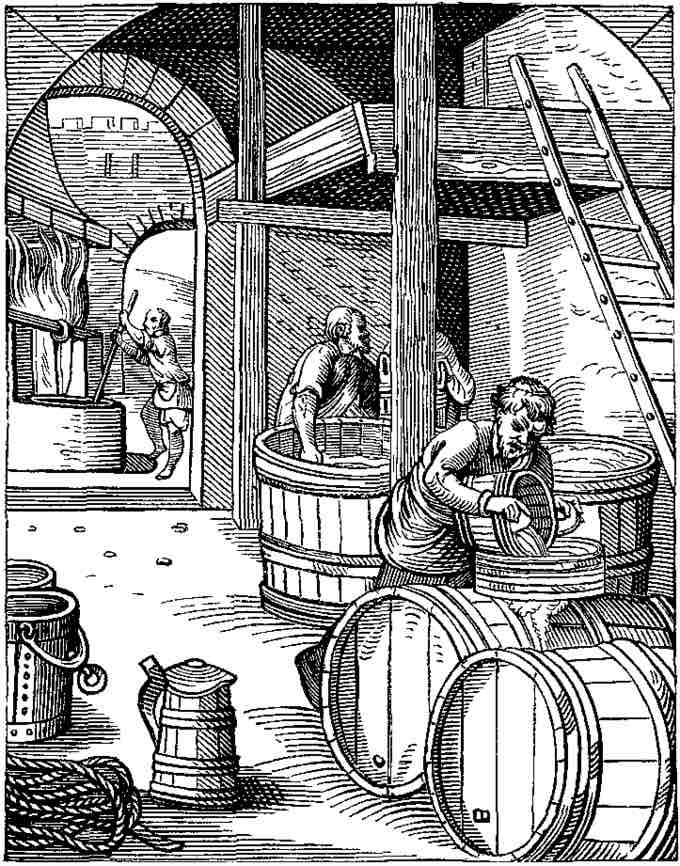People have used biotechnology processes, such as selectively breeding animals and fermentation, for thousands of years . Late 19th and early 20th century discoveries of how microorganisms carry out commercially useful processes and how they cause disease led to the commercial production of vaccines and antibiotics. Improved methods for animal breeding have also resulted from these efforts. Scientists in the San Francisco Bay Area took a giant step forward with the discovery and development of recombinant DNA techniques in the 1970s. The field of biotechnology continues to accelerate with new discoveries and new applications expected to benefit the economy throughout the 21st century.

Biotechnology
Brewing (fermentation of beer) was an early application of biotechnology.
In its broadest definition, biotechnology is the application of biological techniques and engineered organisms to make products or modify plants and animals to carry desired traits. This definition also extends to the use of various human cells and other body parts to produce desirable products. Bioindustry refers to the cluster of companies that produce engineered biological products and their supporting businesses. Biotechnology refers to the use of the biological sciences (such as gene manipulation), often in combination with other sciences (such as materials sciences, nanotechnology, and computer software), to discover, evaluate and develop products for bioindustry. Biotechnology products have made it easier to detect and diagnose illnesses. Many of these new techniques are easier to use and some, such as pregnancy testing, can even be used at home. More than 400 clinical diagnostic devices using biotechnology products are in use today. The most important are screening techniques to protect the blood supply against contamination by AIDS and the hepatitis B and C viruses.